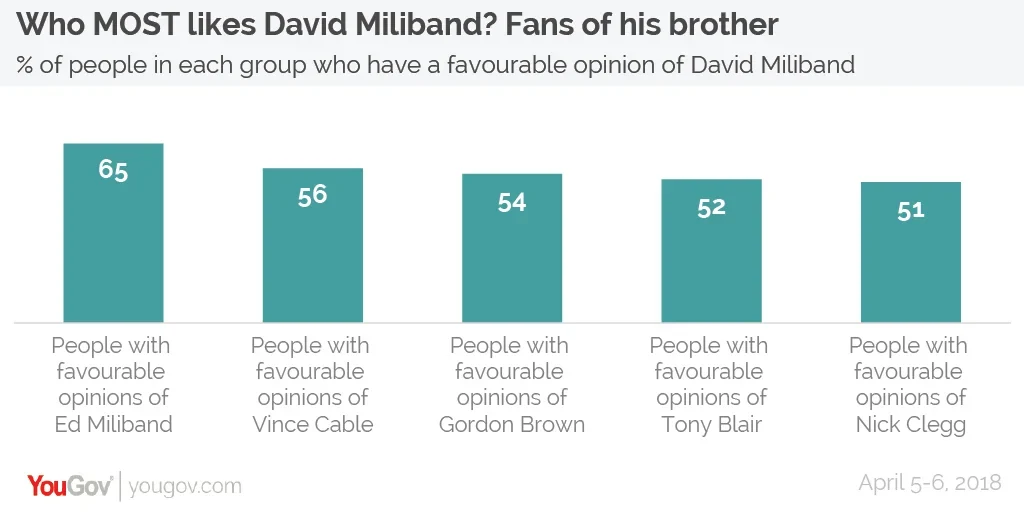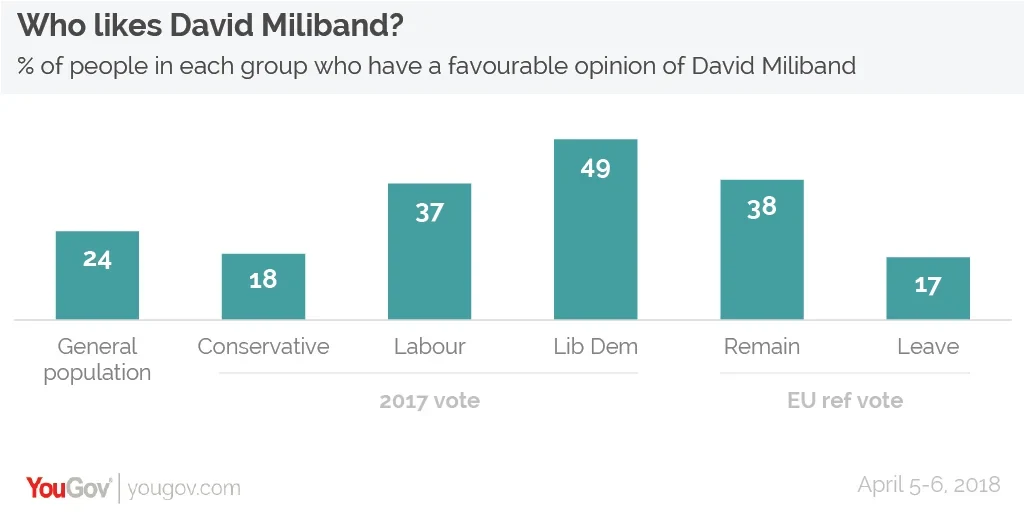With calls for the former foreign secretary to make a return to British politics, YouGov examines which groups have the most favourable opinion of him
Last week former foreign secretary and almost-Labour leader David Miliband made a speech in his capacity as Head of International Rescue Committee calling for the EU to do more to help refugees.
Miliband’s brief re-appearance in the public eye prompted an article in The Times fantasising about him returning to British politics to set up and lead a new centrist party. The article in turn sparked a host of responses on why he would be unsuited to such a role.
YouGov favourability data reveals that only 24% of Britons have a favourable view of David Miliband, compared to 46% who have an unfavourable view (for a net favourability score of -22, making him less popular than the Prime Minister and about as popular as Jeremy Corbyn).
Of course, a new centrist party would not need to gather support across the entirety of the British political spectrum to be effective, so long as it could initially gain enough backing to shape the government’s policy agenda, or procure enough votes to act as kingmaker to another party at the next election. So who are the people that the prospect of a Miliband-led centrist party would most appeal to?
Perhaps ironically, David Miliband is most popular among those who have a favourable opinion of his brother Ed Miliband. Two thirds (65%) of those with a positive view of the Ed M also have a favourable view of David M. He is also seen positively by those with a favourable view of Vince Cable (56%), Gordon Brown (54%), Tony Blair (52%) and Nick Clegg (51%), as well as 49% of those who voted Liberal Democrat in 2017.

By contrast, he is least popular with Conservative and Leave voters (63% and 60% respectively view the senior Miliband unfavourably), but these groups were hardly the target audience in the first place. (Labour voters are split 37% favourable / 37% unfavourable, while similarly Remain voters are split 38%/38%).

Now, there’s a big gap between the public liking a political figure and being willing to back them in a new enterprise. (And on top of all of this is of course the fact that David Miliband has not publicly expressed any such interest in returning to UK politics).
And even if he could convince meaningful numbers of people to support a new centrist party, it is notoriously hard for a new party to successfully break into British politics in a meaningful way. It took the Liberal Democrats 22 years after their foundation to make it into government, and it similarly took 24 years from formation for the Labour party to form its first government (although they had been represented in the coalition governments during the First World War). If the centre ground in British politics is hoping for a party of their own in the government, they may have to wait some time.
Photo: PA









